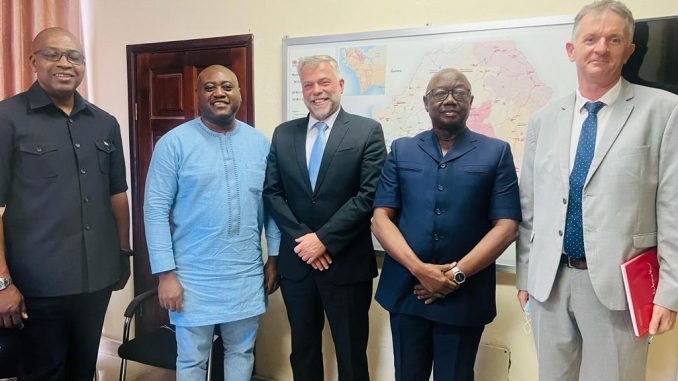
3rd March, 2022, the European Union and the National Authorising Office (NAO) with the different sectors within the Ministry of Energy discuss the energy component on the EU Multi-Annual Indicative Programme (MIP) 2021-2027 at the ministry’s conference room in Freetown.
Explaining the Multi-Annual Indicative Programme, the EU Acting Head of Cooperation Holger Homen, said the three priority areas for EU cooperation with partner countries are the Green Economy, Human Development and Governance. He said the Ministry of Energy falls under the green economy priority.
Holger Homen mentioned that under the green economy priority, the EU is planning to establish 57 minigrids with the aim to foster a green and resilient economy to provide decent jobs and sustainable, inclusive green economic transformation with three specific objectives which includes; to contribute to increased generation and access to modern, sustainable, affordable and reliable energy for jobs and growth; to contribute to sustainable, employment-oriented agriculture and fisheries food systems for health and nutrition and to contribute to restoring, managing and protecting terrestrial and marine biodiversity and ecosystems.
Holger Homen further said if these projects are properly implemented, there will be more economic, social and environmental sustainable food chains that will increase employment, food security, nutrition, agro ecological performance and gender equality and prevent deforestation, increase digital innovation and entrepreneurship for sustainable food systems, improved business environment, access to finance and investment climate
Speaking on behalf of the Minister of Energy, the Chief Director at the Ministry of Energy Benjamin Kamara said the Ministry has both successes and challenges in providing energy. He said in the area of minigrids where EU is focusing its attention now, 54 solar minigrids completed under the phase one Rural Renewable Energy Project, 20 minigrids in 20 chiefdoms completed under the phase two Rural Renewable Energy Project and many more other energy projects funded by donor partners are in progress for the electrification of different rural areas including Western Area.
Benjamin Kamara said the Ministry has done a lot to improve on the policy regulatory environment of the energy sector in the country. He further said 13 electricity regulations developed by EWRC and ratified by parliament, cost-reflective tariff agreed with minigrid operators, environmental guidelines for small and minigrid projects have been developed and approved by Environment Protection Agency, development of an off-grid strategy completed, the development of a national action plan on gender mainstreaming in energy access completed and a National Electrification Strategy has already commenced.
Chief Director, Benjamin Kamara ended by saying, the number of households connected to the grid has increased tremendously, hence after capturing the currently installed mini-grids, and standalone solar PV System, by the end of 2021, the energy access rate is at 31% as compared to 22.0% in 2019, 20.8% in 2018 and 16% in 2017
NAO Director Ambrose James said the main essence of the meeting was for the Ministry of Energy to make the EU understand what the Ministry is doing in relation to energy generation, distribution and the need for the ministry to take leadership and ownership of the identified projects to be funded by the EU under the MIP.
The meeting ended up by representatives from the different sectors in the ministry calling on the EU to help build the capacity of the Ministry.
The meeting is the second of series of meetings with the sector ministries concern after the EU’s Multi-Annual Indicative Programme (MIP) meeting with the Minister of Planning and Economic Development.
At the National Authorising Office we continue to facilitate GOSL- EU development projects for the benefit of Sierra Leonean Citizens
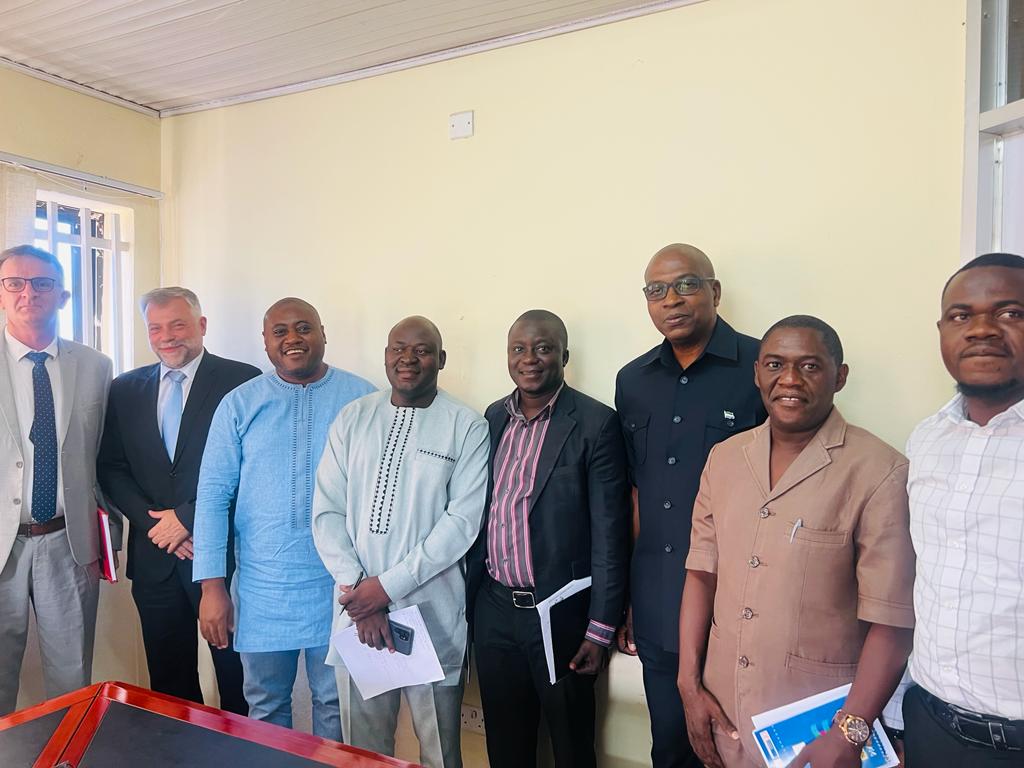
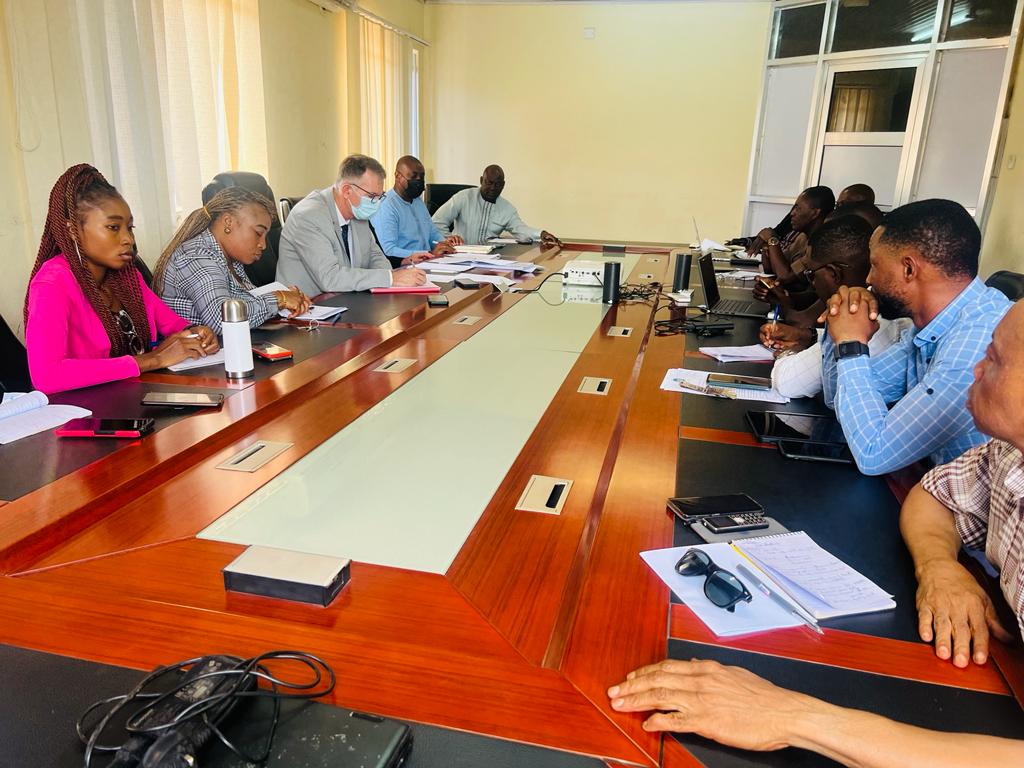
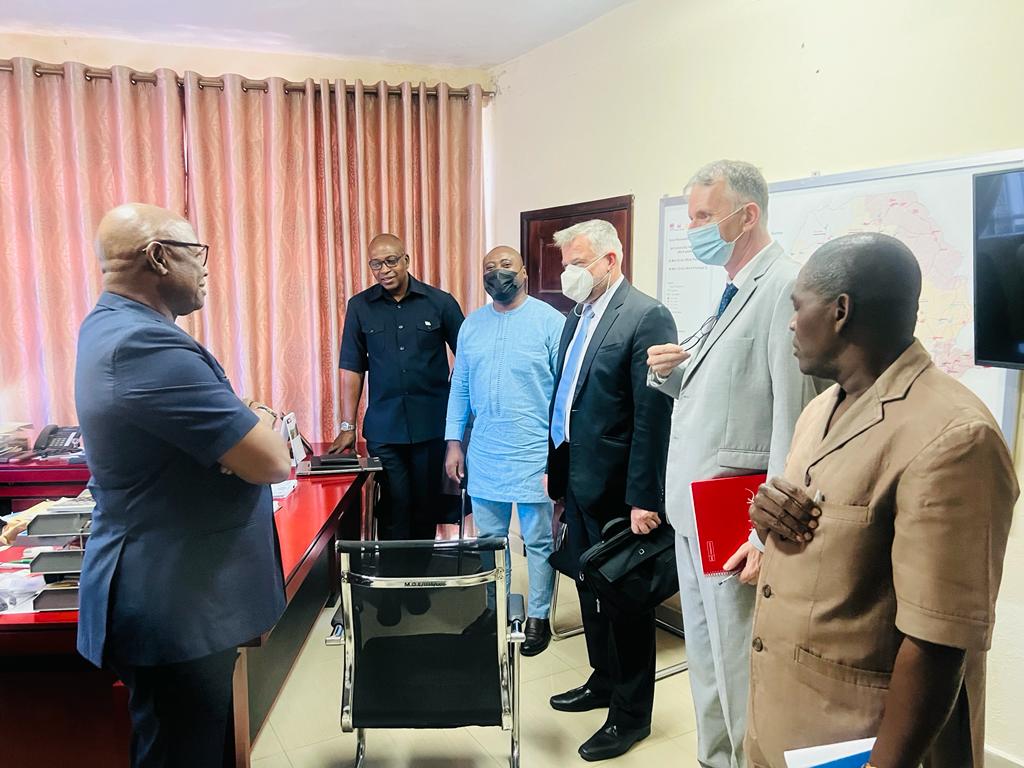
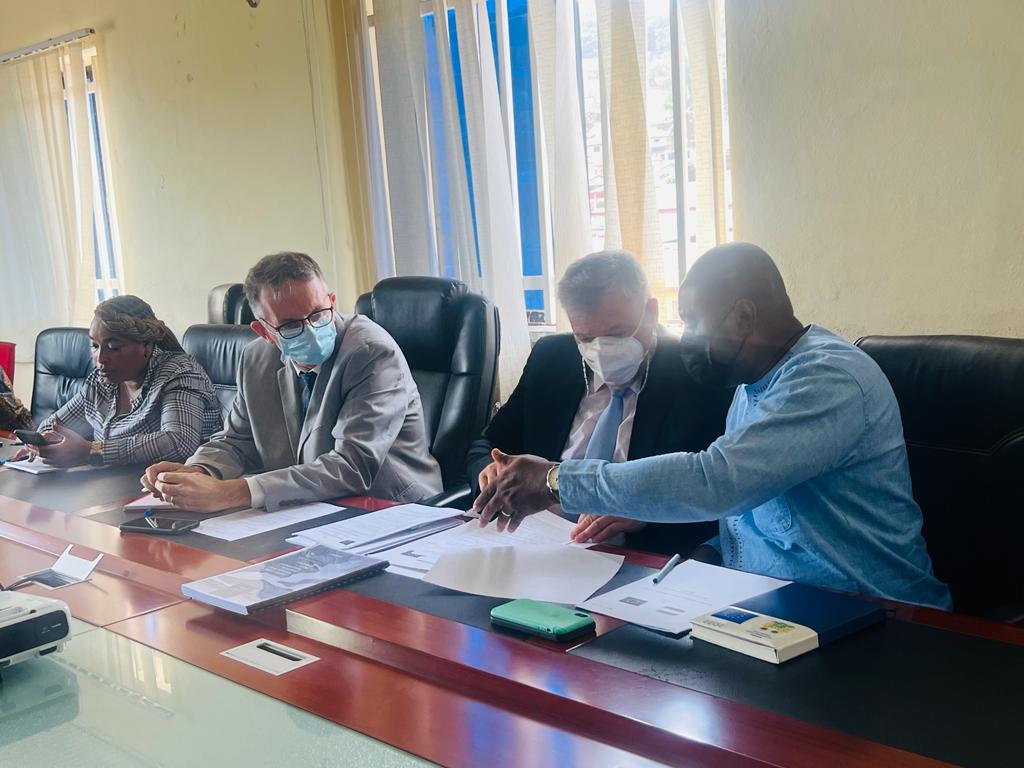

Leave a Reply